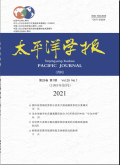太平洋学报2024,Vol.32Issue(4):44-59,16.DOI:10.14015/j.cnki.1004-8049.2024.04.004
中国气候对外援助:一项制度分析
China's Climate Foreign Aid:An Institutional Analysis
摘要
Abstract
While climate foreign aid is an emerging field of China's South-South cooperation,it is an impor-tant way for China to participate in global climate governance.The institutional arrangements of climate for-eign aid are rooted in the socialism with Chinese characteristics,forming a"three-dimensional structure"of the organizational,guiding and regulatory institution of climate foreign aid.Currently,China's climate foreign aid is faced with new situations such as the escalation of the political and economic competitions a-mong the major powers,the increasing downward pressure on the global economy and the transformation of global climate governance.It is necessary to contribute to the function of climate diplomacy,ensure the sup-ply of climate resources,and respond to global climate threats through the institutions of climate foreign aid.At present,there are still shortcomings and deficiencies in the institutions of climate foreign aid,and it is necessary to optimize the organizational institutions,improve the guiding institutions,and promote the regu-latory institutions.This theoretical analysis and optimization plan could provide institutional theoretical ap-proaches or optimization options for China's foreign aid,and also provide institutional experience for the improvement of China's foreign aid.关键词
气候对外援助/气候变化/对外援助/应对气候变化南南合作/制度分析Key words
climate foreign aid/climate change/foreign aid/south-south cooperation on climate change/institutional analysis分类
社会科学引用本文复制引用
曹俊金..中国气候对外援助:一项制度分析[J].太平洋学报,2024,32(4):44-59,16.基金项目
本文系国家社科基金一般项目"新时代中国国际发展合作战略与实现路径研究"(21BGJ070)和上海市"曙光计划"项目"我国对外援助立法问题研究"(21SG57)的阶段性研究成果. (21BGJ070)

